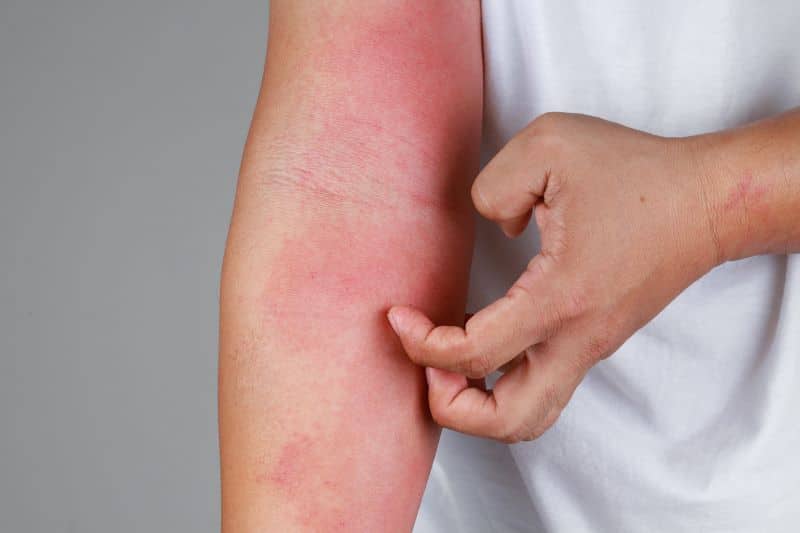Got unexplained allergies or hives? Check your medication

If you’re suffering from unexplained allergies or hives – and you’ve ruled out the usual and not-so-usual triggers – you may want to look at the ingredients on the label of your medication.
While we’re all familiar with the notion that air-born pollens, dust mites, animal hair, chemicals, certain foods as well as food additives can cause allergic reactions, it’s less well-known that certain ingredients in some medications can have a similar effect.
What will a medication label tell me?
Under Australian law prescription medication can only be sold if it contains a label listing all the ingredients contained in the medication. This includes things cause excipients, which is a collective noun for ingredients added to the medication that are not pharmaceutical in nature; things like preservatives, artificial colours, fillers and thickeners.
Preservatives and colours used in medication can cause allergies
Preservatives are commonly used in medications to keep the active ingredients stable during transportation (often from overseas) and also to prolong the drug’s shelf life. Health authorities consider them inert and most of the time these preservatives don’t cause any trouble – until they do.
A small percentage of the population is sensitive to the kinds of preservatives and colourants used in medications and can break out in hives and experience other allergic reactions such as rashes, itching and breathing difficulties.
People who take a large number of medications every day are particularly at risk – the more medications consumed, the larger the quantity of potentially harmful excipients.
What should I be looking for on my medication label?
The following medication excipients have been known to trigger allergic reactions in a very small number of people. Please note – if you find one of the ingredients listed below in your medication, book an appointment with your doctor immediately to discuss the matter, but CONTINUE TO TAKE YOUR medication. If you stop taking your medication before consulting your doctor you may be at risk of developing a far more serious health condition than a suspected allergic reaction.
- Sodium benzoate – sometimes listed as benzoic acid, benzene, sodium benzoate, or benzoate. If you see the ingredients citric acid,” “ascorbic acid,” or “vitamin C listed on the same label, be especially concerned and consult your doctor immediately. It’s known that when sodium benzoate is combined with ascorbic acid it turns into benzene, a known carcinogen that may cause cancer
- Benzalkonium chloride – Benzalkonium chloride is a well-known irritant that can cause irritant contact dermatitis or allergic contact dermatitis in some individuals.
- Chlorocresol – A study of more than 5,000 people with skin problems in NSW and Victoria found that around 2% were allergic to the preservative chloroacetamide, commonly found in Sorbolene Cream. Chlorocresol is also used in some medications to increase shelf-life.
- Polyethylene Glycol – Is used in everything from industrial machinery to medicine. People usually discover they’re allergic to the polyether compound after reporting allergic reactions to a range of seemingly unrelated products.
- Carboxymethyl cellulose – this cellulose gum has been inked to inflammation of the gut, inflammatory bowel diseases and as a possible trigger for Crohn’s disease.
Note from National Custom Compounding – We can’t stress enough how important it is to always check with your doctor first before discontinuing any medication – even if you do think you have an allergy to an excipient. Talk to your doctor about your concerns first. If your doctor suspects it could be an allergy to an excipient, they can test the theory by getting your medication made up without the preservative and excipients by a compounding pharmacist.
We regularly make up medications free from preservatives, colours and other excipients for people with allergies and we’ll be happy to talk to your doctor, free of charge, to discuss how this may benefit you.
For more information on medications made without artificial preservatives, colours and other additives speak to one of the friendly team at National Custom Compounding on 1300 731 755 or admin@custom compounding.com.au
